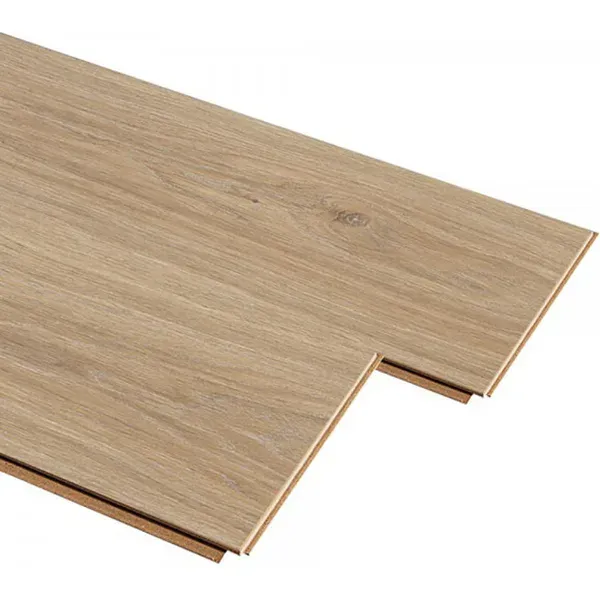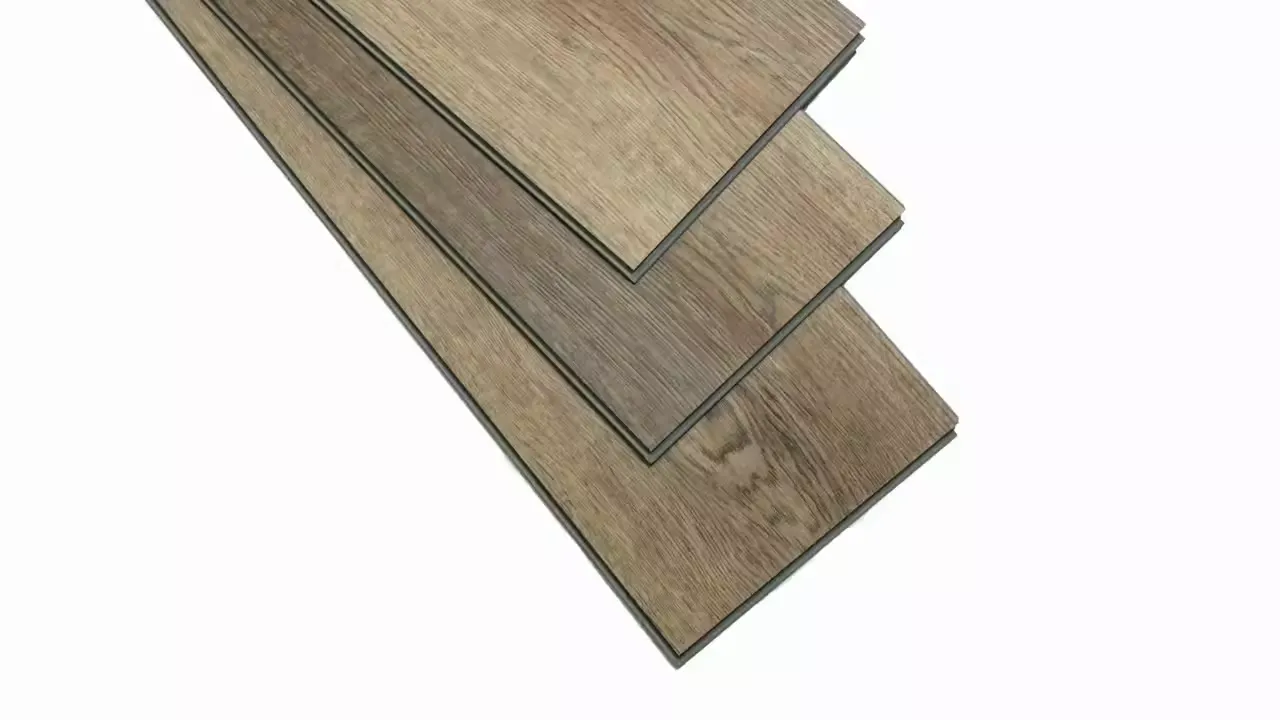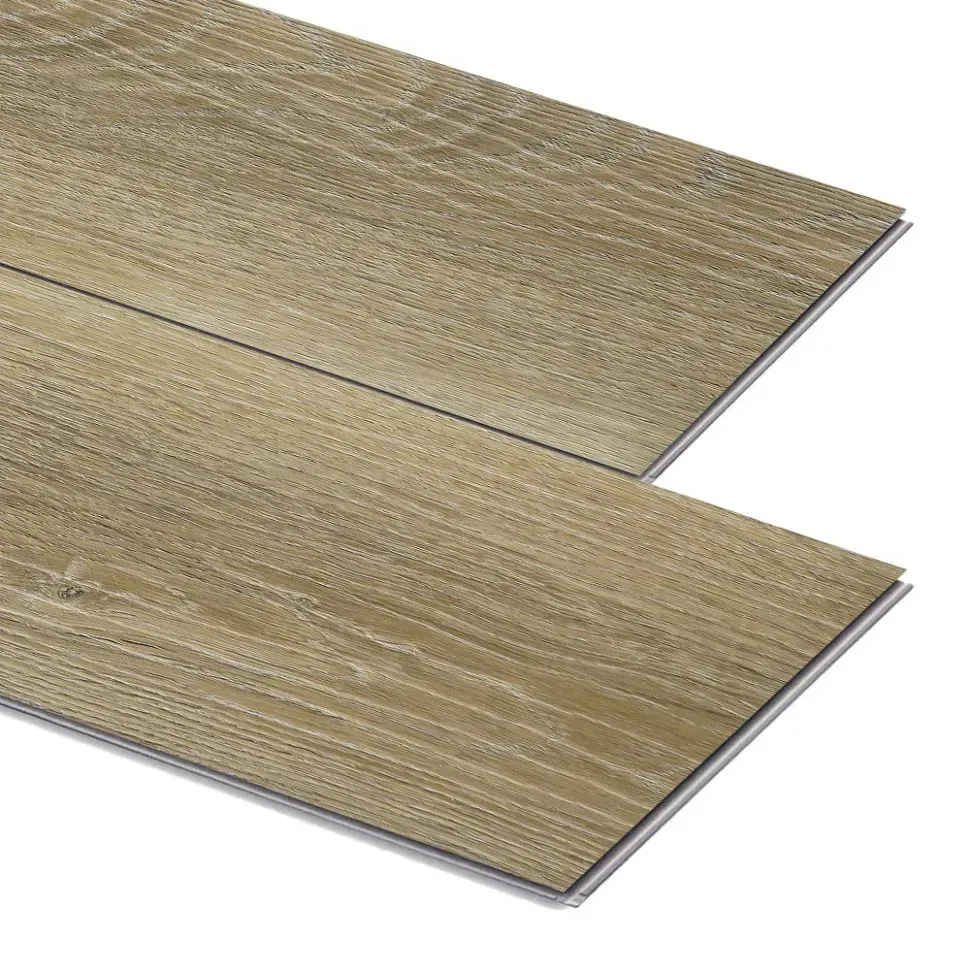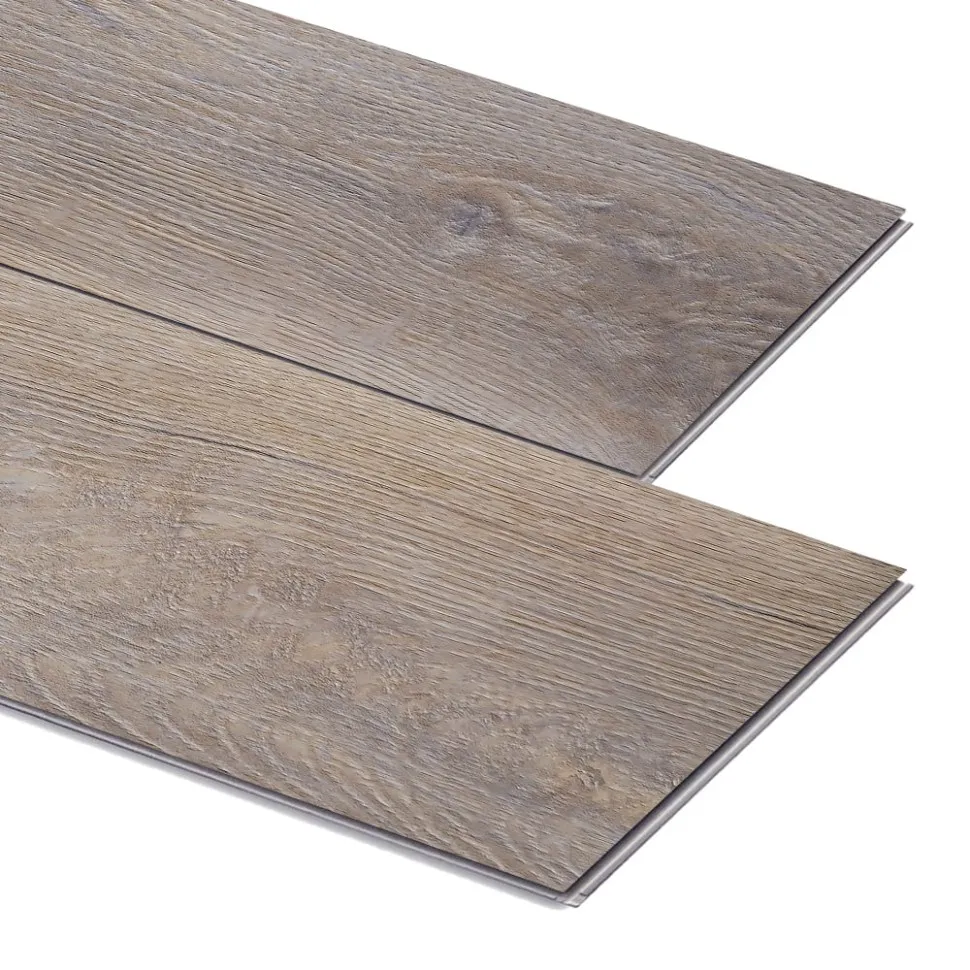Durable SPC Flooring: Waterproof Vinyl Planks & Click Install
Introduction to Stone Plastic Composite (SPC) Flooring
In modern commercial and industrial environments, the demand for high-performance, durable, and aesthetically versatile flooring solutions is paramount. SPC flooring, or Stone Plastic Composite flooring, has emerged as a leading choice, redefining expectations for resilience and longevity. This advanced vinyl flooring category is engineered from a blend of natural limestone powder, polyvinyl chloride, and stabilizers, creating an incredibly stable and waterproof core. Its unique composition makes it an ideal solution for areas subjected to heavy foot traffic, moisture, and fluctuating temperatures, ensuring sustained performance and reduced maintenance costs across diverse B2B applications.
The innovation in spc flooring technology addresses critical challenges faced by commercial spaces, including susceptibility to expansion and contraction, water damage, and impact wear. With its rigid core construction, it offers superior dimensional stability compared to traditional luxury vinyl tile (LVT) or wood plastic composite (WPC) options. This article delves into the intricate details of its manufacturing, technical specifications, application versatility, and the tangible advantages it offers to discerning B2B decision-makers.
Industry Trends and Market Dynamics
The global flooring market is experiencing a significant shift towards sustainable, high-performance materials, with spc flooring at the forefront. Current industry trends indicate a strong preference for materials that offer both aesthetic appeal and robust functionality. The demand for `vinyl spc flooring` is particularly escalating in sectors such as healthcare, education, hospitality, and retail, driven by requirements for hygiene, durability, and ease of installation. Furthermore, the emphasis on quick and efficient installation methods, such as the `spc flooring click` system, is gaining traction, reducing project timelines and labor costs.
Market analysis suggests a compounded annual growth rate (CAGR) for resilient flooring, with spc flooring being a primary growth driver due to its competitive `spc flooring price` point relative to its performance benefits. Manufacturers are also focusing on eco-friendly production processes and materials, responding to increased environmental consciousness among commercial clients. The trend towards modular, easy-to-replace flooring solutions further solidifies SPC's market position, offering unparalleled flexibility in maintenance and renovation cycles.

Detailed Manufacturing Process of SPC Flooring
The production of spc flooring involves a sophisticated multi-layered extrusion and calendering process, ensuring its characteristic rigidity and dimensional stability. Understanding this process is crucial for appreciating the technical superiority of the final product.
Materials & Core Composition:
- Stone Powder: Primarily calcium carbonate (limestone), comprising 60-70% of the core, providing the rigidity and density.
- Polyvinyl Chloride (PVC) Resin: A high-grade polymer acting as a binder, ensuring cohesion and flexibility.
- Stabilizers & Lubricants: Additives that enhance heat stability during processing and improve the material's overall performance.
- Underlayment (Optional): Integrated IXPE or EVA foam underlay for enhanced sound absorption and comfort, crucial for commercial environments.
Manufacturing Steps:
- Raw Material Mixing: Precise blending of stone powder, PVC resin, plasticizers, and stabilizers in large mixers to create a homogeneous compound.
- Extrusion of SPC Core: The mixed compound is fed into an extruder, where it is heated and pressed through dies to form the rigid SPC core sheet. This continuous casting process ensures uniformity in thickness and density.
- Hot-Pressing/Calendaring: The extruded SPC core sheet then undergoes a calendaring process where the decorative film layer and wear layer are thermally bonded to the core under high heat and pressure. This step is critical for layer adhesion and overall product integrity.
- UV Coating Application: A UV-curable coating is applied to the surface to enhance scratch, stain, and fade resistance. This layer is cured under ultraviolet light, providing a durable protective finish.
- Cooling & Stabilization: The sheet is passed through cooling rollers to stabilize its dimensions and prevent warping.
- Profiling (Click System): The cooled sheets are then cut into planks or tiles, and precision CNC machining is used to mill the tongue-and-groove `spc flooring click` locking profiles on the edges, ensuring tight, glueless installation.
- Quality Control & Packaging: Each batch undergoes rigorous testing to meet established industry standards (e.g., ISO 9001, ISO 14001, ASTM F1700 for resilient flooring, EN 16511). This includes dimensional stability tests, indentation resistance, and abrasion resistance.
The service life of high-quality spc flooring typically ranges from 15 to 25 years in commercial settings, a testament to its robust manufacturing. Target industries include petrochemical facilities for office spaces, metallurgy administrative areas, and extensive applications in water supply & drainage infrastructure offices, where resistance to moisture and heavy traffic is paramount. Its advantages manifest in scenarios requiring energy saving through reduced HVAC load (due to its thermal mass) and superior corrosion resistance in potentially humid or chemical-prone environments.
Technical Specifications and Performance Parameters
Selecting the right spc flooring requires a thorough understanding of its technical specifications. Key parameters directly influence performance, durability, and suitability for specific B2B applications.
| Parameter | Standard Value/Range | Description |
|---|---|---|
| Total Thickness | 4.0mm - 8.0mm | Overall plank thickness; impacts comfort and durability. |
| Wear Layer Thickness | 0.3mm (12 mil) - 0.7mm (28 mil) | Crucial for abrasion resistance; thicker layers for high-traffic commercial use. |
| Density | 1.9 - 2.1 g/cm³ | Indicates core rigidity and stability; higher density means greater robustness. |
| Dimensional Stability (ISO 23999) | ≤ 0.05% | Resistance to expansion/contraction under temperature changes. Superior to WPC/LVT. |
| Residual Indentation (ASTM F1914) | ≤ 0.1 mm | Resistance to permanent indentation from static loads; critical for heavy furniture/equipment. |
| Fire Rating (EN 13501-1) | Bfl-s1 or Cfl-s1 | Measures reaction to fire; Bfl-s1 is typically required for public buildings. |
| Slip Resistance (EN 13893) | DS (Dynamic Coefficient of Friction) ≥ 0.30 | Ensures safety in commercial environments, especially where spills may occur. |
| Formaldehyde Emission (EN 717-1) | E1 ( | Measures volatile organic compound (VOC) emissions; E0/E1 indicates low emissions. |
These specifications underline the engineering excellence embedded in spc flooring. The rigid core provides unparalleled stability, making it less susceptible to telegraphing subfloor imperfections and ensuring a consistent appearance over time. The wear layer, typically made of PVC, is critical for resisting scratches and abrasions, with thicker wear layers offering extended durability for high-traffic commercial environments. The integrated underlayment further enhances acoustic performance and underfoot comfort, adding value in healthcare and educational settings where noise reduction is paramount.

Versatile Application Scenarios
The inherent properties of spc flooring make it exceptionally versatile for a multitude of commercial applications where durability, water resistance, and ease of maintenance are non-negotiable.
- Healthcare Facilities: Hospitals, clinics, and elder care centers benefit from its hygienic properties, ease of cleaning, and resistance to spills and heavy rolling loads (e.g., hospital beds, medical carts). Its waterproof nature prevents bacterial growth in damp areas.
- Educational Institutions: Schools, universities, and daycares require flooring that can withstand constant foot traffic, spills, and heavy furniture. SPC flooring offers superior wear resistance and can be easily sanitized, maintaining a healthy learning environment.
- Retail Spaces: From bustling supermarkets to boutique stores, retail environments demand attractive, hard-wearing flooring that can endure high footfall and display changes. The aesthetic versatility and impact resistance of spc flooring ensure a premium look that lasts.
- Hospitality: Hotels, restaurants, and entertainment venues leverage SPC for its luxurious appearance, sound dampening (with integrated underlay), and resistance to moisture in bathrooms and kitchenettes. Customer feedback consistently highlights its ability to withstand spills and maintain its appearance under high usage.
- Corporate Offices: Modern office spaces utilize spc flooring for its sleek appearance, acoustic comfort, and low maintenance. Its dimensional stability prevents buckling in open-plan offices with large temperature fluctuations.
- Light Industrial & Warehousing Offices: In administrative sections of light industrial facilities or warehouses, SPC provides a robust, easy-to-clean surface that can handle the transition from high-traffic loading zones to clean office environments without degradation.
A recent service case involved installing `vinyl spc flooring` in a high-traffic university dormitory hallway. The previous flooring, a traditional laminate, had failed due to moisture ingress and heavy impact. Our SPC flooring solution, with its 0.5mm wear layer and integrated IXPE underlay, was installed using the `spc flooring click` system, drastically reducing installation time by 40%. Post-installation, the university reported significant improvements in noise reduction and zero signs of wear or moisture damage after 18 months, exceeding their expectations for durability and maintenance ease.
Technical Advantages of SPC Flooring
The technical advantages of spc flooring stem directly from its innovative multi-layered composition and rigid core. These benefits translate into tangible operational and cost efficiencies for B2B enterprises.
- Superior Dimensional Stability: Unlike conventional vinyl flooring that can expand and contract with temperature fluctuations, the stone-plastic composite core in SPC flooring offers exceptional dimensional stability (as per ISO 23999, typically
- 100% Waterproof: The non-porous nature of its core makes SPC impervious to water. This is a critical advantage in moisture-prone areas like commercial kitchens, bathrooms, basements, and healthcare facilities, preventing water damage and mold growth.
- Extreme Durability & Impact Resistance: The rigid core provides outstanding resistance to dents, scratches, and impacts from heavy foot traffic or dropped objects. The robust wear layer protects against abrasion, ensuring a longer aesthetic and functional lifespan in demanding commercial settings.
- Easy & Quick Installation (Click System): The `spc flooring click` lock system allows for floating installations without the need for adhesives, significantly reducing installation time and labor costs. This feature is particularly attractive for large-scale commercial projects with tight deadlines.
- Low Maintenance: The sealed, smooth surface of spc flooring is resistant to stains and spills, making cleaning effortless. Routine sweeping and occasional damp mopping are sufficient to maintain its pristine appearance, contributing to lower operational expenditures over its service life.
- Sound Absorption: With an integrated IXPE or EVA underlay, SPC offers enhanced acoustic performance, reducing sound transmission between floors and within a space, a crucial benefit for office buildings, hotels, and multi-story residential complexes.
- Underfloor Heating Compatibility: Its low thermal expansion rate and stability make SPC flooring an excellent choice for installations over radiant underfloor heating systems, providing efficient heat transfer without compromising flooring integrity.
These technical attributes collectively deliver a high return on investment for businesses, minimizing downtime for repairs, reducing cleaning expenses, and providing a long-lasting, aesthetically pleasing, and safe environment for employees and customers.

Vendor Comparison & Key Differentiators
When sourcing `spc flooring wholesale`, selecting a reputable vendor is critical. While the base product offers inherent advantages, the quality of manufacturing, adherence to standards, and service offerings vary significantly. B2B decision-makers should evaluate vendors based on several key differentiators beyond just the `spc flooring price`.
| Feature | SPC Flooring | LVT (Luxury Vinyl Tile) | WPC (Wood Plastic Composite) |
|---|---|---|---|
| Core Composition | Stone powder & PVC | Flexible PVC | Wood flour & PVC |
| Rigidity/Density | Highest (Rigid) | Low (Flexible) | Medium (Semi-rigid) |
| Dimensional Stability | Excellent (Highly stable) | Good (Can expand/contract) | Very Good (Better than LVT) |
| Waterproof | 100% Waterproof | Water resistant (Seams can be an issue) | 100% Waterproof |
| Underfoot Comfort | Good (often with attached underlay) | Good (flexible, absorbs impact) | Excellent (thicker, airier core) |
| Installation Method | Click-lock (Floating) | Glue-down or click-lock | Click-lock (Floating) |
Key Vendor Evaluation Criteria:
- Certifications and Compliance: Reputable manufacturers will provide extensive certifications such as ISO 9001 (Quality Management), ISO 14001 (Environmental Management), CE marking, and compliance with ASTM or EN standards for flooring performance. These attest to the authoritativeness and quality of their products.
- Product Portfolio & Customization: A broad range of designs, colors, textures, and technical specifications (wear layer thickness, integrated underlay options) demonstrates a vendor's ability to meet diverse project requirements.
- Years of Service & Client Portfolio: Vendors with a long history and a strong portfolio of successful commercial installations with recognized partner clients exhibit proven experience and reliability.
- Technical Support & After-Sales Service: Access to expert technical advice, installation guides, and robust after-sales support is crucial for the successful implementation and longevity of the flooring solution.
- Warranty & Lead Time: Comprehensive commercial warranties (typically 10-25 years) and transparent lead times for `spc flooring wholesale` orders are indicators of trustworthiness and operational efficiency.
While an attractive `spc flooring price` is important, it should always be balanced against these critical quality and service factors to ensure long-term value and performance.
Customized Solutions for B2B Projects
B2B projects often have unique requirements that off-the-shelf flooring solutions cannot fully address. Leading `vinyl spc flooring` providers offer extensive customization options to precisely match architectural, functional, and branding specifications.
- Design & Aesthetics: Custom print films allow for bespoke patterns, brand logos, and specific color palettes to be incorporated, ensuring seamless integration with interior design themes. Options include realistic wood grains, stone textures, abstract designs, and solid colors.
- Technical Specifications: Customization extends to the technical parameters, such as specific wear layer thicknesses (e.g., 0.7mm for extreme heavy commercial use), plank dimensions (wider/longer planks for expansive spaces), and integration of specialized underlays for enhanced acoustics or thermal insulation.
- Surface Finishes: Beyond standard UV coatings, specialized finishes can be applied for increased slip resistance (e.g., for industrial kitchens or wet areas), anti-bacterial properties (crucial for healthcare), or enhanced scratch protection.
- Fire Retardancy & VOC Compliance: For projects in highly regulated sectors, manufacturers can formulate SPC flooring to meet stringent fire safety standards (e.g., Class A fire rating) and ultra-low VOC emissions for superior indoor air quality.
Engaging with a manufacturer capable of delivering these customized `spc flooring wholesale` solutions ensures that the flooring not only performs optimally but also perfectly complements the project's unique functional and aesthetic demands, resulting in a truly bespoke outcome.
Application Case Study: High-Traffic Retail Chain
A national retail chain approached us with a critical challenge: their existing ceramic tile flooring in over 50 stores was constantly cracking due to heavy foot traffic and falling merchandise, leading to frequent, costly repairs and significant operational disruption. They required a durable, quick-to-install, and aesthetically consistent solution across all their outlets.
Solution Implemented: We proposed a high-grade spc flooring solution, featuring a total thickness of 6.0mm and a robust 0.7mm wear layer, specifically engineered for extreme commercial use. The chosen design mimicked natural concrete, providing a modern, industrial aesthetic consistent with the brand's image. The `spc flooring click` system was selected for rapid installation, minimizing store downtime.
Results & Benefits:
- Reduced Installation Time: Each store's flooring replacement was completed within 2-3 days, a 60% reduction compared to traditional tile installation, enabling stores to reopen faster.
- Enhanced Durability: After two years of continuous operation, there have been no reported incidents of cracking, chipping, or significant wear, even in high-traffic checkout areas. The flooring has successfully resisted impacts from falling heavy goods.
- Cost Savings: Elimination of repair costs and reduced cleaning labor due to the stain-resistant surface led to an estimated 25% reduction in annual flooring maintenance expenditure across all locations.
- Improved Aesthetics: The consistent, modern appearance of the `vinyl spc flooring` significantly uplifted the overall store ambiance, contributing to a better customer experience.
This case study exemplifies the long-term value and operational advantages that a well-chosen spc flooring solution can deliver to large-scale commercial enterprises.

Frequently Asked Questions (FAQ)
- Q1: Is SPC flooring suitable for heavy industrial environments?
- A1: While exceptionally durable for most commercial uses, high-grade SPC flooring with a thick wear layer (e.g., 0.7mm) is ideal for administrative offices within industrial settings. For areas with very heavy machinery or continuous exposure to extreme chemicals, specialized industrial flooring might be more appropriate. It excels in spaces requiring high foot traffic resistance and water protection.
- Q2: What is the typical lead time for a large `spc flooring wholesale` order?
- A2: Standard lead times for commercial `spc flooring wholesale` orders typically range from 3 to 6 weeks, depending on order volume, customization requirements, and current production schedules. We recommend contacting our sales team for precise lead time estimates for your specific project.
- Q3: How does the `spc flooring click` system work, and what are its benefits?
- A3: The `spc flooring click` system features precision-milled tongue-and-groove edges that mechanically lock planks together without adhesive. This allows for a "floating" installation, significantly speeding up the process, reducing labor costs, and making future repairs or replacements easier. It also eliminates the need for messy glues, contributing to better indoor air quality.
- Q4: What are the warranty terms for commercial SPC flooring?
- A4: Our commercial `vinyl spc flooring` products come with robust warranties, typically ranging from 15 to 25 years for commercial applications, covering manufacturing defects, wear-through, and structural integrity under normal use. Specific terms vary by product line and project type; please refer to our detailed warranty documentation for comprehensive information.
Lead Time, Fulfillment & Warranty
Our commitment to efficiency and reliability is paramount for B2B clients. For `spc flooring wholesale` orders, standard lead times are typically 3-6 weeks from order confirmation to dispatch, subject to material availability and customization requirements. Expedited options may be available for urgent projects. We maintain robust supply chain management to ensure timely fulfillment.
All commercial spc flooring products are backed by comprehensive warranties that reflect our confidence in their quality and durability. Our standard commercial warranties range from 15 to 25 years, covering wear, delamination, and structural integrity when installed and maintained according to our guidelines. Specific warranty details are provided with each quotation and order confirmation.
Customer Support Information
We provide dedicated technical support and after-sales service to ensure the success of your project and the long-term satisfaction with our SPC flooring solutions.
- Technical Consultation: Our team of flooring experts is available to assist with product selection, technical specifications, installation guidelines, and best practices for various application scenarios.
- Sample Requests: We offer material samples to facilitate informed decision-making for large-scale projects.
- Installation & Maintenance Guides: Comprehensive documentation is provided to ensure correct installation and optimal maintenance for extended product life.
- Responsive Support: For any inquiries or support needs, clients can reach us via phone or email during business hours. Our goal is to provide timely and effective assistance.
References
- International Organization for Standardization (ISO). (n.d.). ISO 9001:2015 Quality Management Systems – Requirements. ISO.org.
- ASTM International. (n.d.). ASTM F1700 - Standard Specification for Solid Vinyl Tile and Plank. ASTM.org.
- European Committee for Standardization (CEN). (n.d.). EN 16511: Resilient floor coverings — Specification for Loose-lay panels (LVT). CEN.eu.
- Floor Covering Institute. (n.d.). Understanding SPC Rigid Core Flooring. Floorcoveringinstitute.com.
- National Wood Flooring Association. (n.d.). Resilient Flooring Basics. NWFA.org.
-
Masking Tape: Clean Removal, Precision Lines, Pro-GradeNov.10,2025
-
Skirting: MDF, Oak & SPC | Durable, Easy-FitNov.10,2025
-
Commercial VCT Tile Flooring – Durable, Low-MaintenanceNov.10,2025
-
LVT Vinyl Floors – Waterproof, Scratch‑Resistant, Easy ClickNov.10,2025
-
Masking Tape - Pro-Grade, Clean Removal, Crisp LinesNov.10,2025
-
Premium Masking Tape - Sharp Lines, Clean RemovalNov.10,2025




